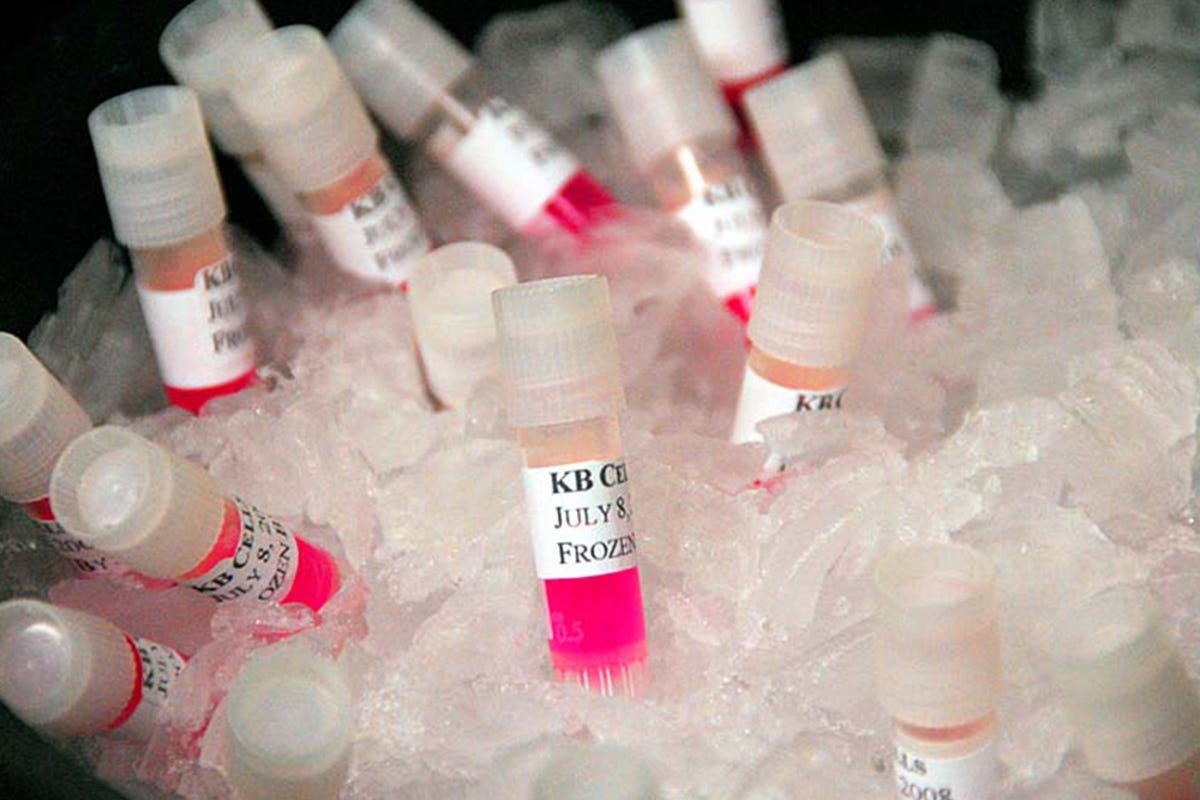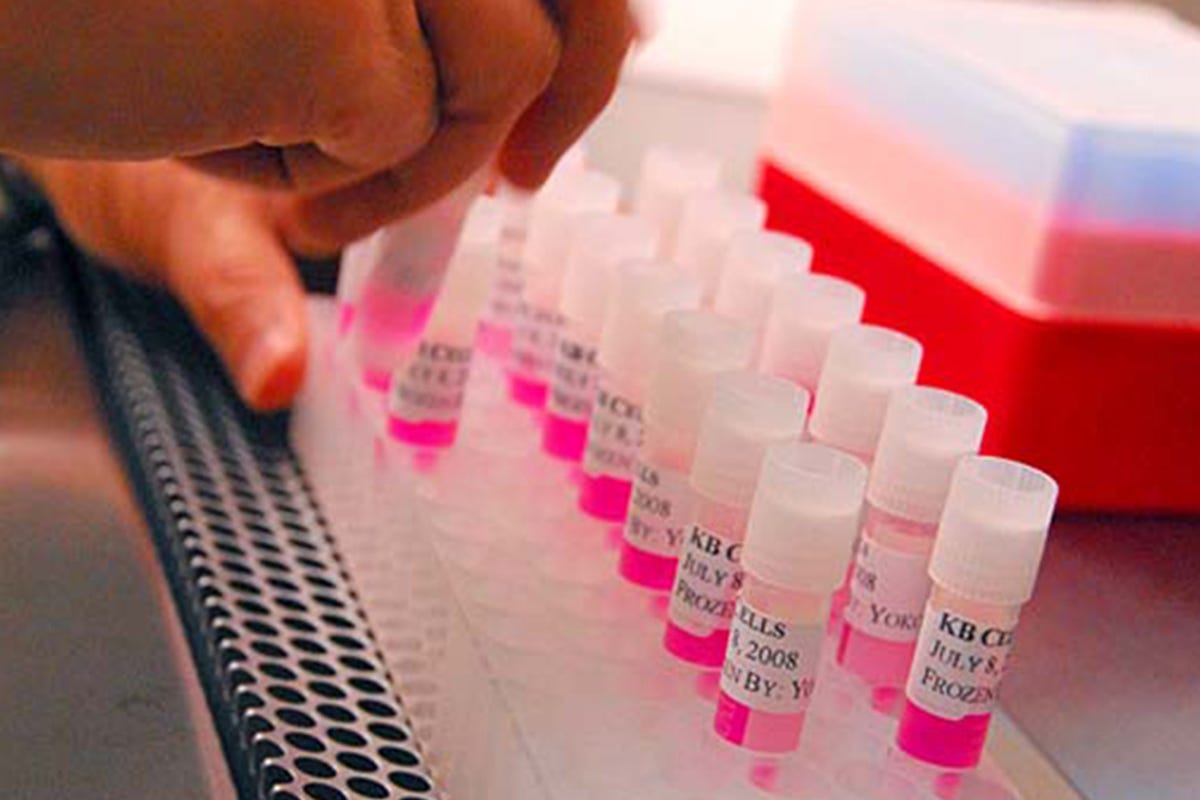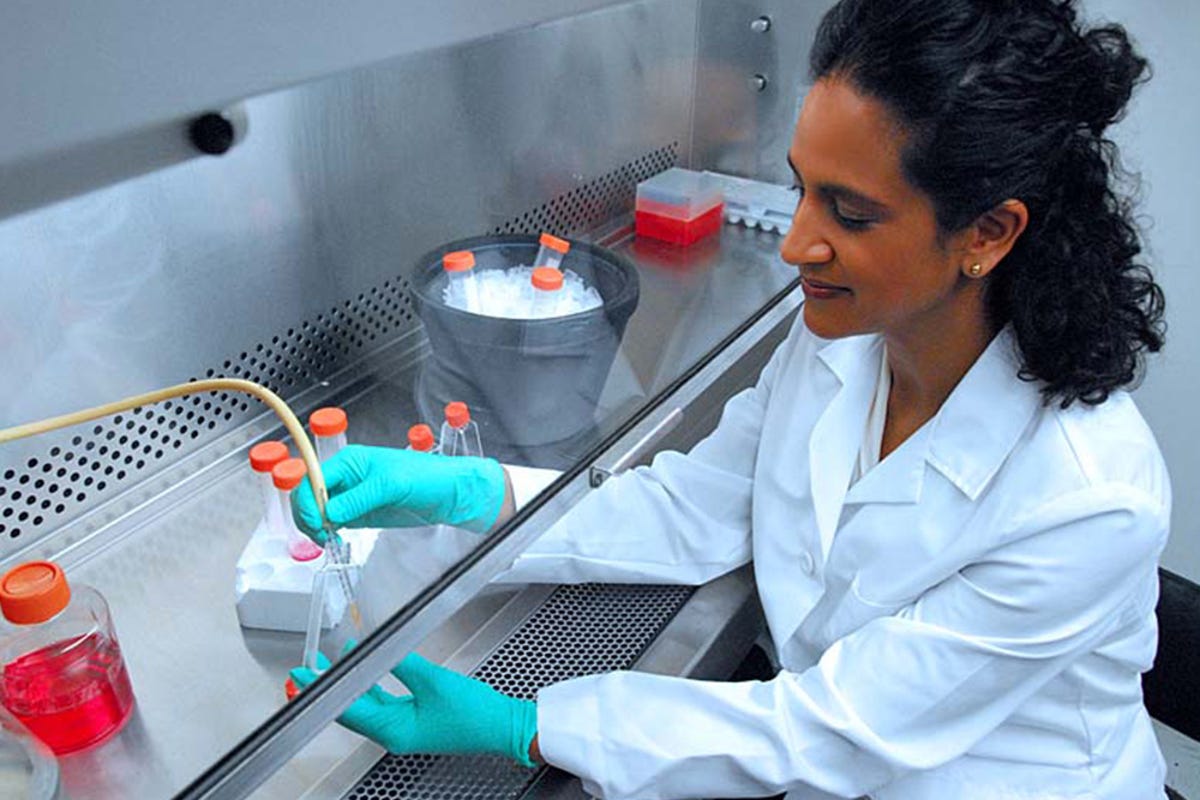Fellow Portrait
Mona S. Jhaveri
Foligo Therapeutics
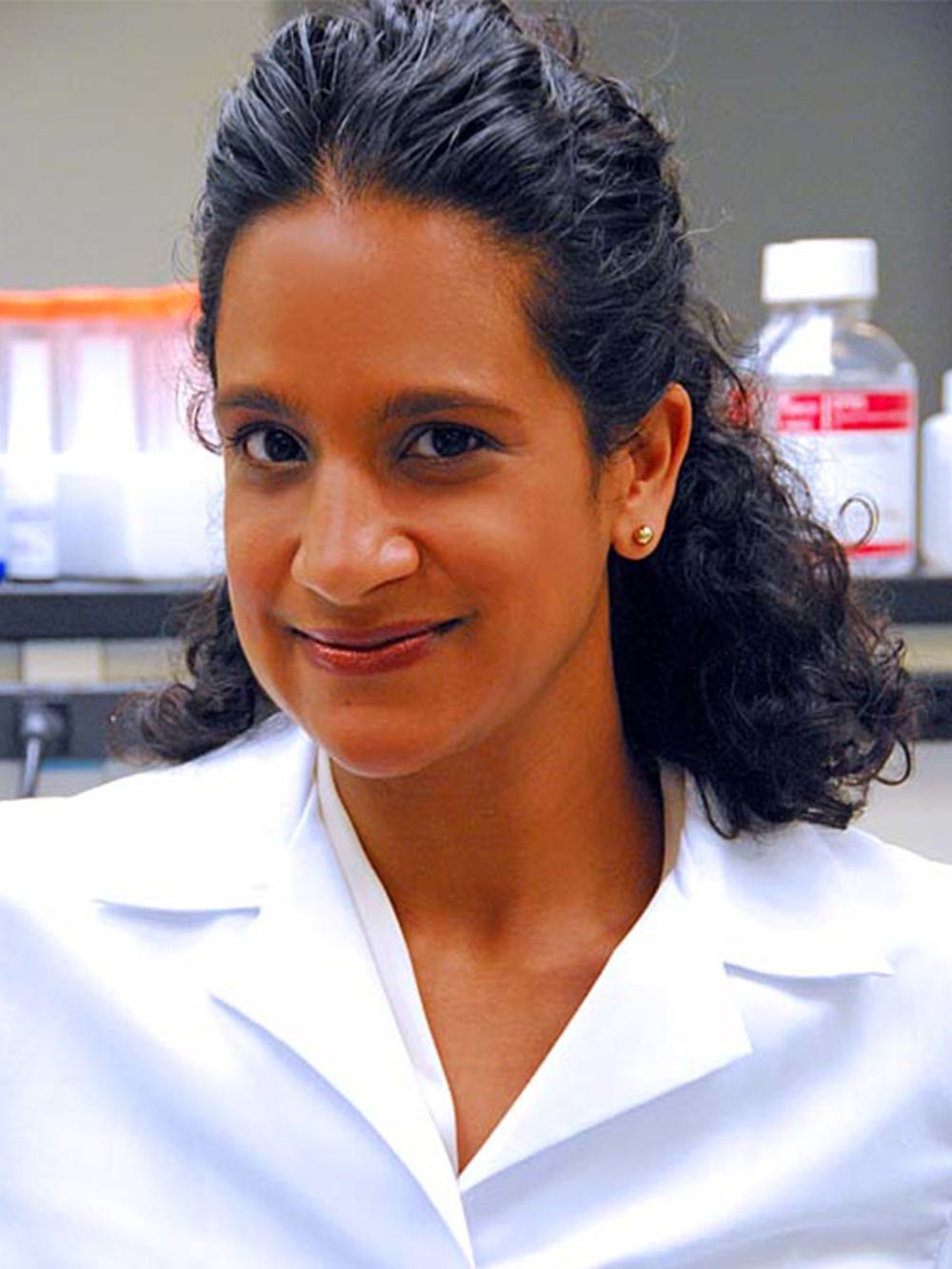
A biotech company aiming to improve the detection and treatment of ovarian cancer.
North America
UNITED STATES
FELLOW
2008
Updated March 2008
Ovarian cancer is often referred to in medical circles as a 'silent killer' because it is notoriously difficult to detect. A lack of accurate screening tests or clear early symptoms mean that most women who develop the disease aren't aware of it until it's too late. The treatment will depend on the type of ovarian cancer, how far it has spread and the severity of the cancer. Most women are offered surgery to remove the cancerous tumour, followed by a course of chemotherapy or radiotherapy.
Dr. Mona S. Jhaveri hopes to change the way we detect and treat ovarian cancer. Her company, Foligo Therapeutics, Inc., is developing early diagnostic techniques and DNA-based therapeutics that aim to destroy cancerous cells and reduce suffering.
Mona says, "I have always wanted to play a part in solving major problems affecting women's health. Foligo is the embodiment of my dream."
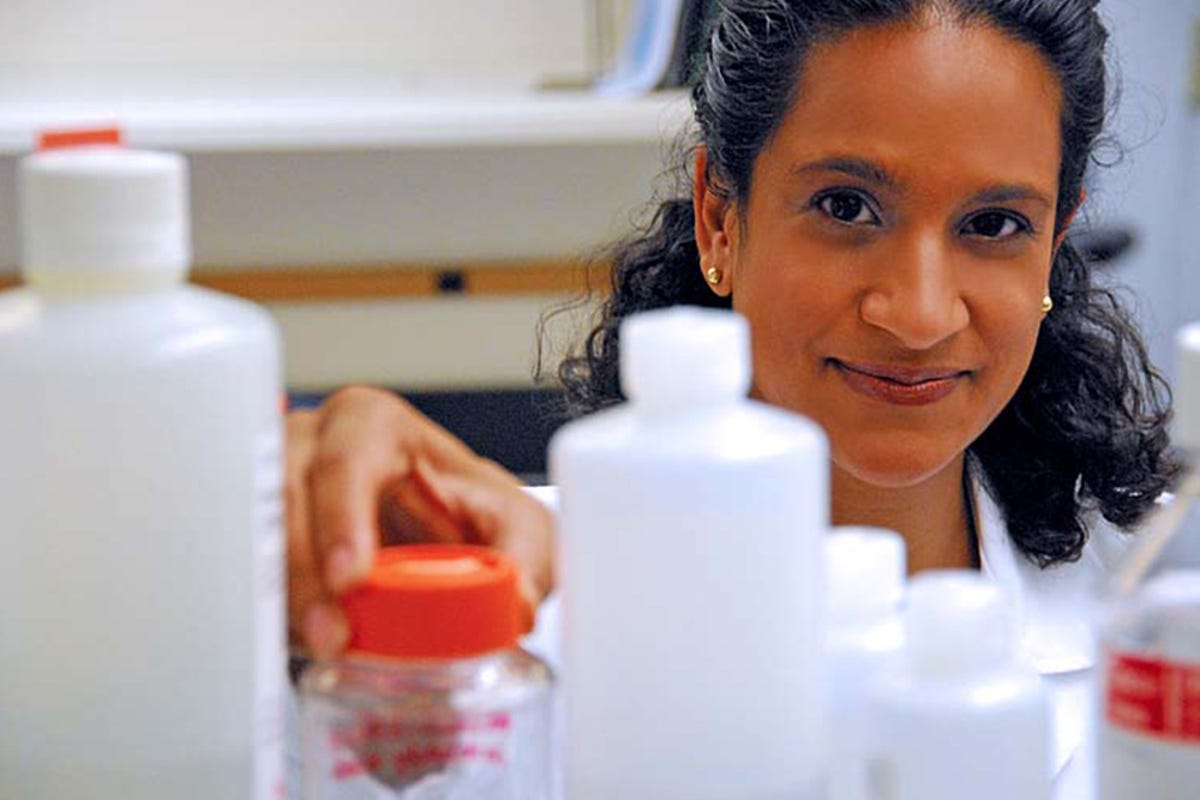
A chance discovery
After receiving her doctorate in biochemistry from Wake Forest University, Mona carried out post-doctoral research at the U.S. National Cancer Institute. One day, while experimenting with cancer-promoting proteins called folate receptors, she had a serendipitous moment: she accidentally reversed the DNA sequence of the folate receptor, which, when combined with ovarian cancer cells, caused them to die, rather than multiply.
The NCI allowed Mona to patent her DNA-based therapeutic in the late 1990s. But it wasn't until years later, while participating in a program training women entrepreneurs to create technology-based start-ups, that she decided to create her own business and market her discovery.
Founded in October 2005, Foligo has a three-fold mission: achieve earlier diagnosis of ovarian cancer, improve efficacy of standard care through "personalized" treatment strategies and improve quality of life through non-toxic, cost effective, targeted therapies. Mona says, "I want to give hope to the thousands of women who succumb to ovarian cancer every year."
When the disease is caught early, survival rates are much higher. Mona also believes that therapeutic technology has several advantages over traditional treatments. "DNA-based compounds only impact diseased cells, leaving healthy tissue unharmed and reducing the side effects of non-selective chemotherapies. Plus, DNA-based therapeutics are extremely cost effective to manufacture and can be taken orally."
Foligo's leading therapeutic compound, FOLIGO 001, has already been proven effective in destroying cancer cells containing high levels of the folate receptor. The next step is to test the treatment on mice with ovarian cancer.
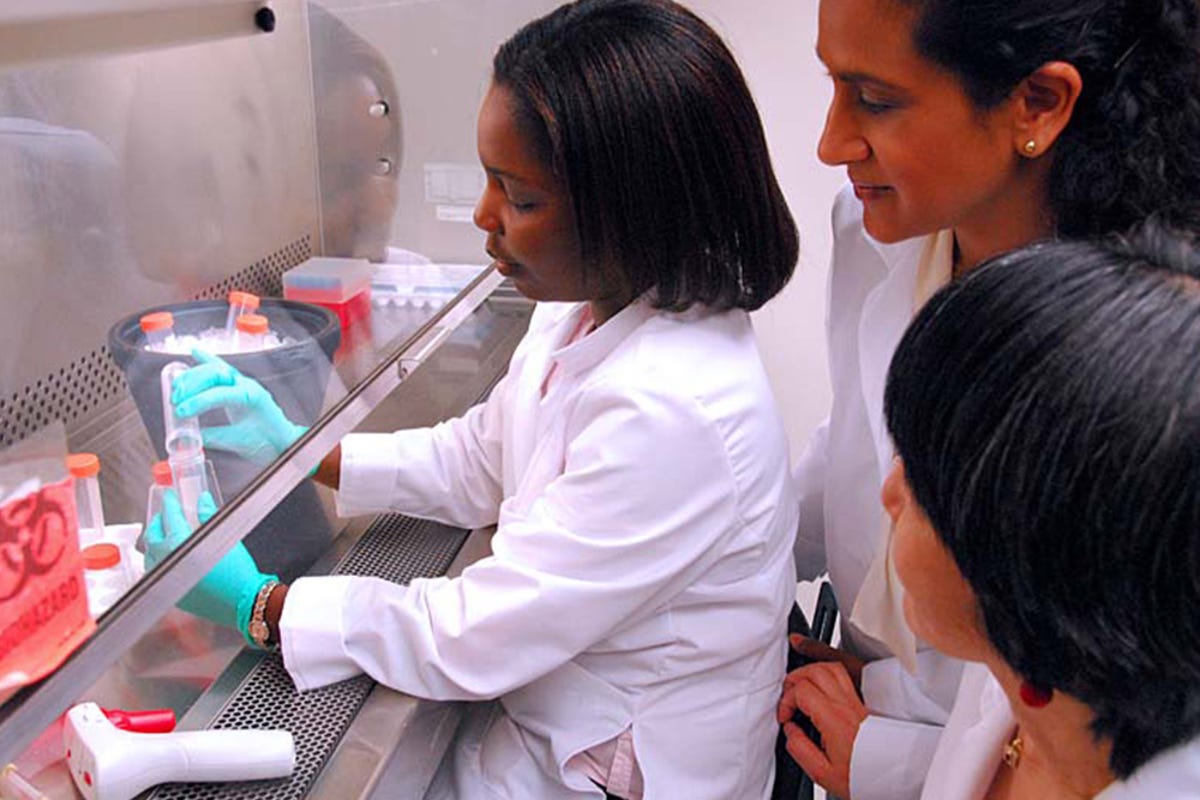
The long road to a cure
Mona quickly learned that starting a biotech company is no easy task. Beyond passion, it requires a great deal of time and money. Lab costs quickly multiply, as do expenses for blood samples and animals, often running into the millions.
Foligo is looking for state, county and federal government funding, as well as small business grants to finance costly clinical trials and manufacturing fees. But Mona isn't discouraged: "Advancing medicine always takes years of persistence, but we really believe we have a wonderful opportunity here to help thousands of women."
Foligo has already partnered with Isis Pharmaceuticals, which provides research materials and support. In the future, Mona hopes to license her technology to companies like Bristol-Meyers Squibb, Genzyme and Eli Lilly. In the meantime, she's working on diagnostic techniques, including a test that would help identify which ovarian cancer patients will respond positively to chemotherapy.
It can be particularly tough being a women entrepreneur in the medical research field, which remains a predominantly male domain. "I've often found myself working in boys clubs," Mona says. "I'll go to medical events and there are no women there. I come as the anomaly. It's inspired me to work harder and keep pushing for my vision."
